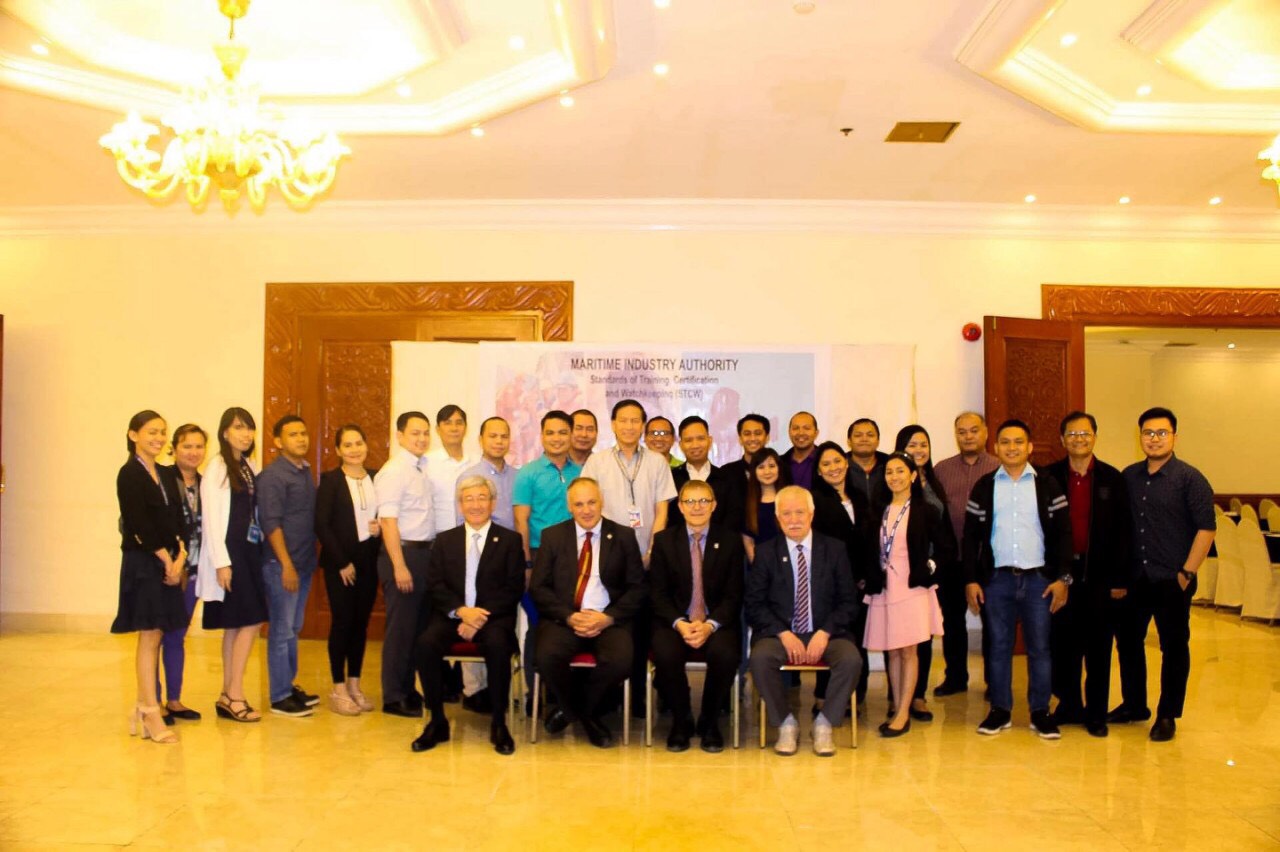MANILA, PHILIPPINES – As an effort in upholding the quality of maritime education and training, the Maritime Industry Authority (MARINA) conducted a
“Peer-Assisted Evaluation Scheme Workshop” on STCW and Maritime Education and Training (MET) issues on 15 November 2018.
With assistance from the International Association of Maritime University (IAMU), the activity served as an avenue for collaboration among maritime higher education institutions (MHEIs) representatives such as curriculum developers, quality assurance specialists, deans, instructors, and assessors by sharing their best practices in the implementation of the STCW Convention 1978, as amended.
MARINA officer-in-charge Vice-Admiral Narciso Vingson Jr. emphasized that collaboration among stakeholders is needed to respond to the call of times in the industry, given the latest advancements shaping the future of maritime education and training.
“Our strengthened ties with the international community speak loudly of our dedication in upholding the high quality of maritime education and training through collaboration and full adherence to the International Convention. Our unified efforts to respond to the needs of our seafarers underlines our advantage in a market challenged by rapid technological developments,” Vice-Admiral Vingson said.
Meanwhile, Executive Director Professor Takeshi Nakazawa and Professor Vladimir Lopinovsky of the IAMU, Professor Damir Zec of University of Rijeka, and Jan Askholm of the Svendborg International Maritime Academy (SIMAC) imparted their knowledge to the participants about the management and curricula development in MET institutions.
Futhermore, Vice-Admiral Vingson mentioned that the MARINA is currently doing its job in employing the “whole of government approach” in the implementation of a comprehensive action plan, covering harmonized legislation, inter-agency cooperation, responsive national provisions, and comprehensive internal processes.
“These significant reforms in governance and effective public service ensure that we produce competent seafarers certificated in accordance with the international convention,” Vice-Admiral Vingson said.
Finally, the MARINA OIC urged maritime education partners, including the international community, to work hand-in-hand in achieving the ultimate objective for the Philippine maritime industry — to sustain an industry that is safe, economical, and environmentally-conscious.
 |
###


